Project: Health Care and Primary Education for Rag Pickers
Location: Delhi and NCR
Category: Education and Health Care
Improving the Lives of Rag Pickers
Education in sanitation and hygiene is still a rarity for the children in underserved communities in India. Rag pickers are one such urban community.
Children and adults in one of India’s rag picker communities earn their livelihood by collecting waste from different sources. Perceived as socially despicable, members of this community (including children) do not have access to basic necessities such as safe drinking water and sanitation. During this fiscal year, in collaboration with Indian Pollution Control Association (IPCA), IDS implemented a number of behavioral intervention programs called Activity Based Care (ABC). The goal of this project was to bring about behavioral change in the younger population of this community to improve their lifestyle, social status, and health conditions. It also aims to prepare role models to promote sanitation and hygiene education further within their broader community.
The target community of rag pickers come from the districts of Murshidabad and Jalpaiguri of West Bengal and Purnia and Samastipur of Bihar, which are classified as backward districts by the government of India. They currently live in suburban areas and in urban slums in Delhi and NCR. A total of ten educational programs were organized within the duration of one year, and approximately 500 child rag pickers were educated about personal hygiene.
Health Care Education
From April to December 2016, four health camps were set up at different locations such as Barola and Indirapuram. In each health camp, about 30–60 children were provided health care. The program included:
- giving a dental check-up
- performing a systemic examination including Respiratory Peak Expiratory Flow Rate (PEFR)
- distributing multivitamins and de-worming pills
- preparing a health card for each registered student
Physicians physically examined the children to determine their general health condition, measuring Body Mass Index (BMI), giving an Ear, Nose, and Throat (ENT) exam, testing for anemia, and checking the condition of children’s skin, nails, and hair.
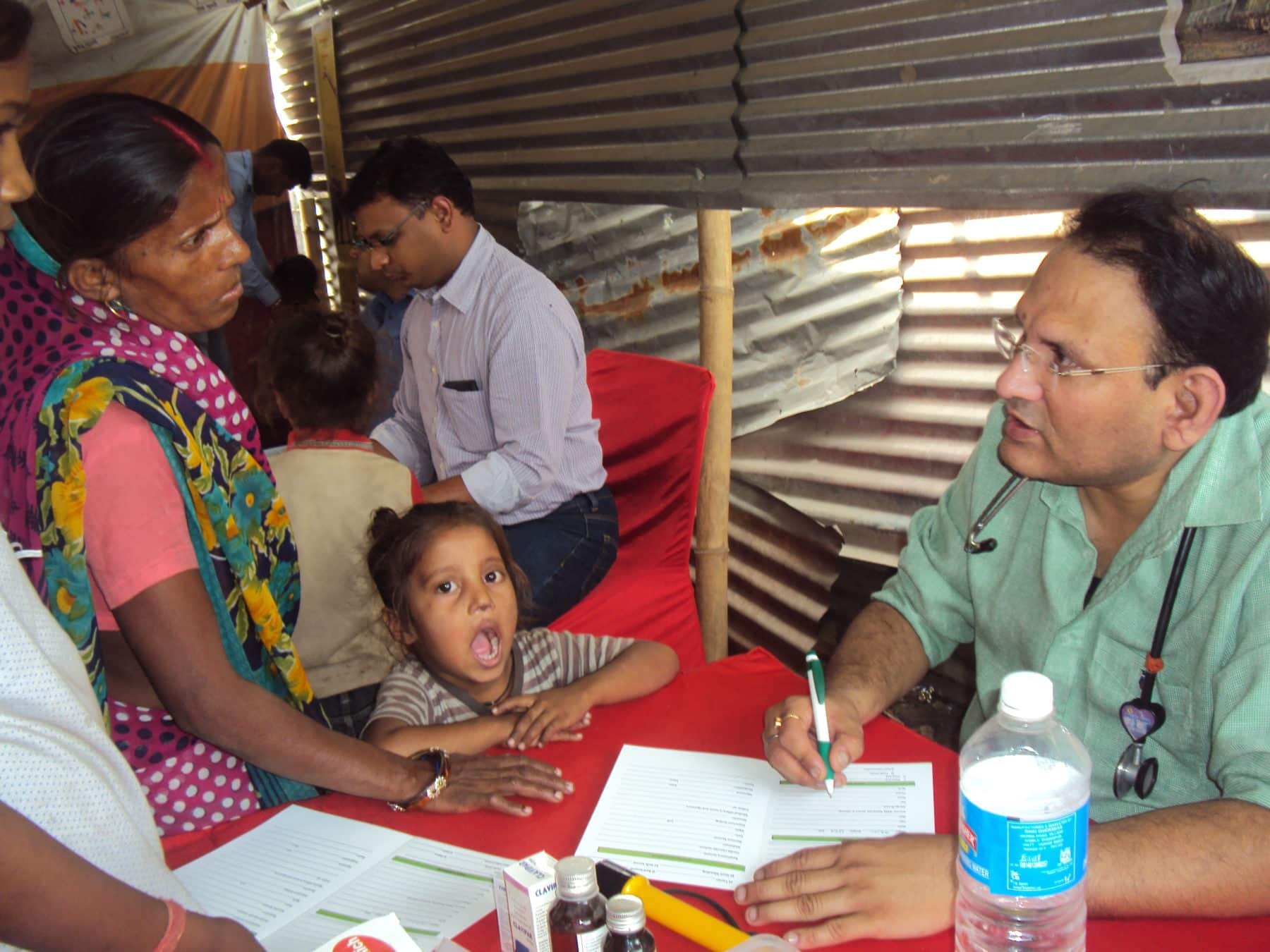
A health record was created for each child which included:
- children’s nutrition status (access to food)
- working conditions
- availability of basic amenities (access to clean drinking water and toilets)
- sanitary practices followed
It is hoped that these records will help to mitigate the health problems these children may experience in the near future.
In the month of September, a hand wash activity was conducted which included training on personal hygiene. Children were instructed in hygiene habits such as how and when to wash their hands and how to brush their teeth properly. Ultimately, the goal is to build routine behavior through repetition of the simple activities of sanitation.
Primary Education
In addition to the health care program, IPCA has been running the primary education program for rag pickers children since 2013 with the support of IDS. Currently, five education centers are running in Delhi NCR (two in Indirapuram and three in Noida) with 35–40 children at each center. The primary education program is producing children who are better prepared to attend government schools and thus, the drop-out rate has been reduced. Fifty-three percent of the IPCA program graduates who were admitted to government schools in 2016 were girls.
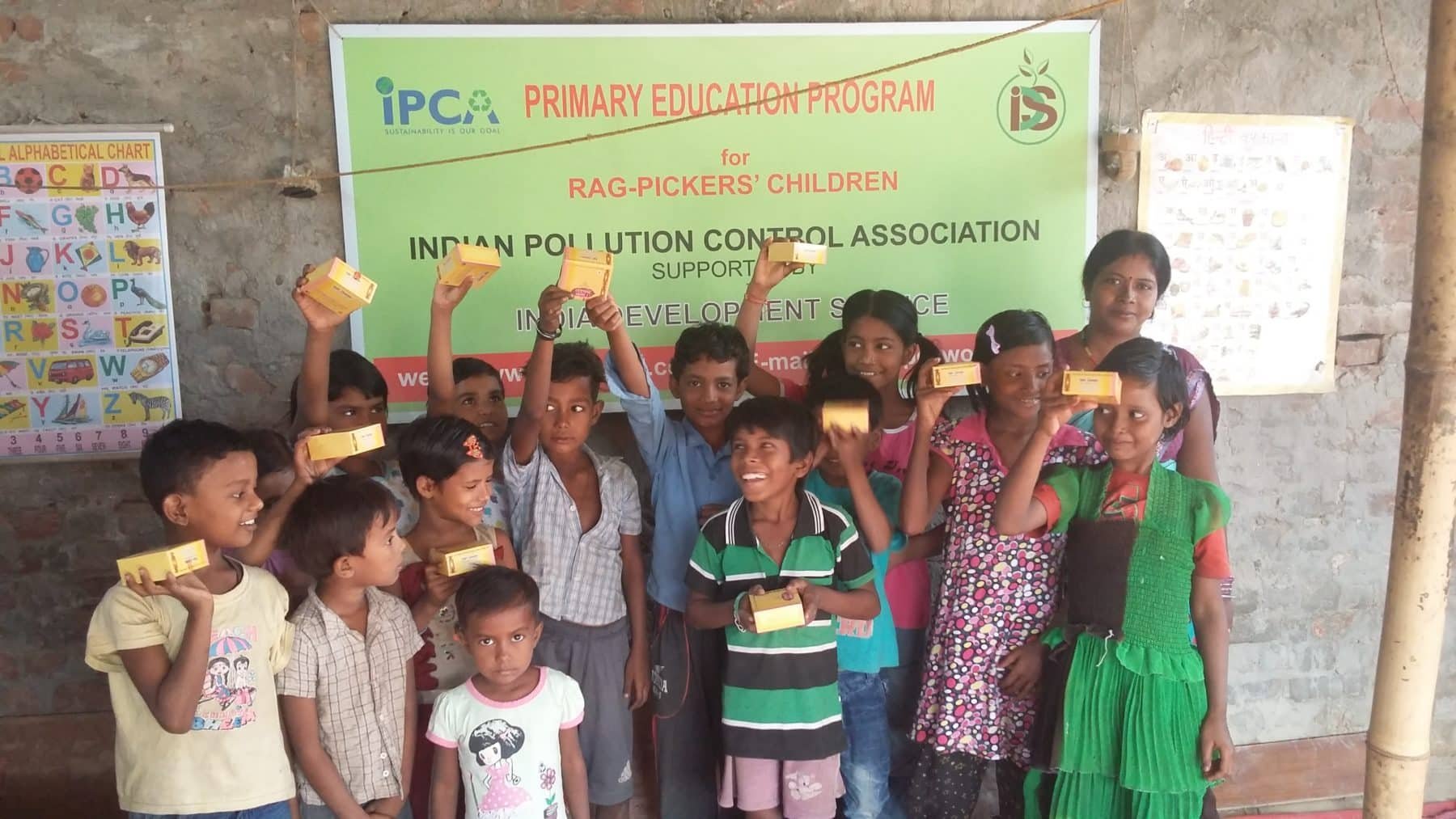
Teacher Training
Continuous support and mentoring are essential for the effective implementation of the health care and primary education programs. Therefore, teacher training programs are used to build the capacity of the staff. These programs focus on developing teaching materials/aids and activities that encourage children to adopt healthy habits and promote them within their community.
IDS Coordinator: Sameer Prasad
Project Manager: Nitin Sharma
—2016 IDS annual report
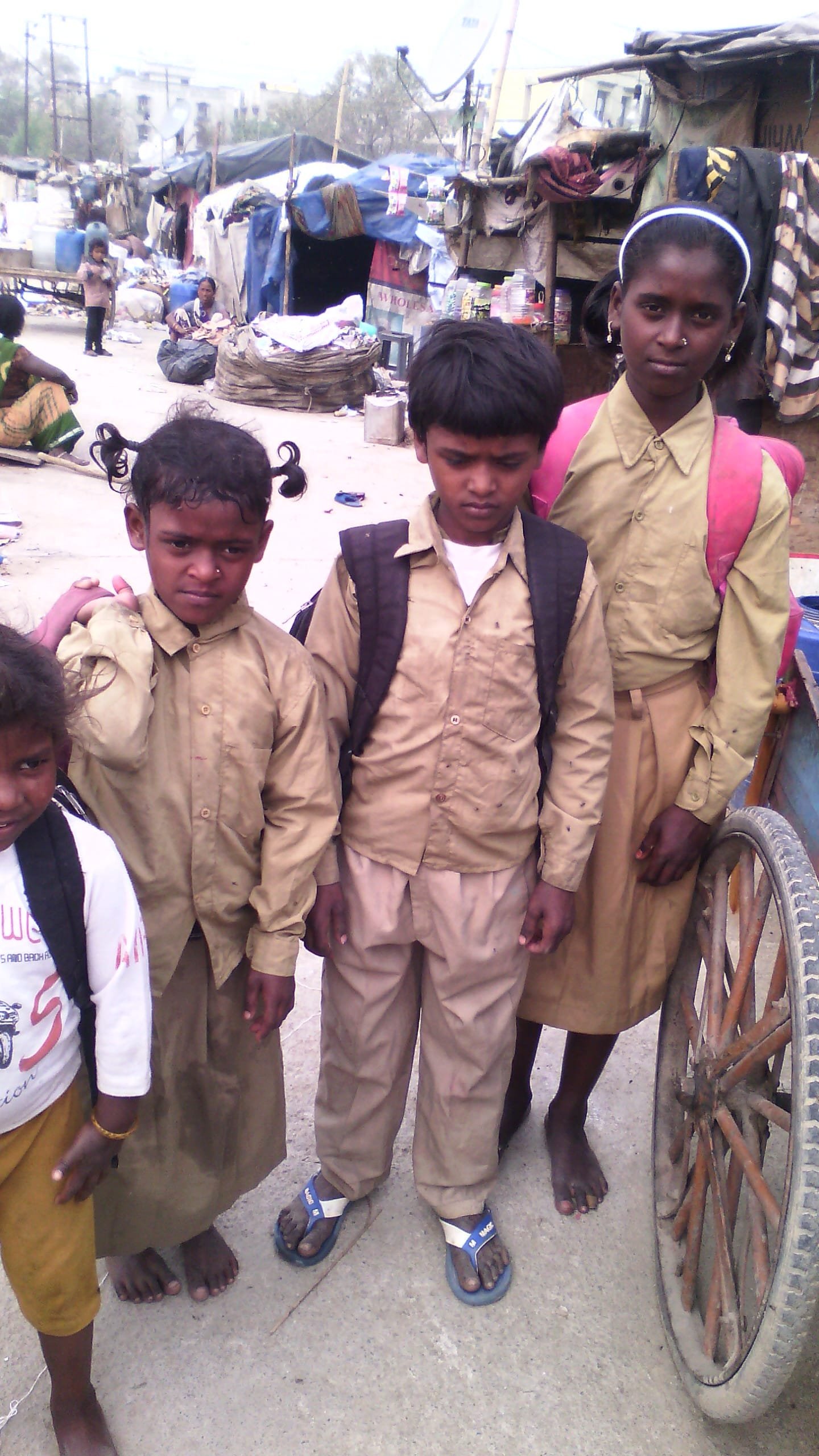
Most of the rag pickers in the National Capital Region are migrants from West Bengal, Bihar, and eastern Uttar Pradesh. They are largely illiterate and often have no option other than to engage in rag picking. The income generated through rag picking is not sufficient to live on; therefore, the children of rag pickers are encouraged to help in waste collection. These children live in unhygienic conditions, spend most of their time collecting waste along with their parents, and are not encouraged to attend school. In addition, government schools have not shown much interest in enrolling these children.
Through the collaborative work of IDS and the Indian Pollution Control Association (IPCA), this primary education project has served around 267 children. At present, we have five schools running in the Delhi NCR region: two in Bhowapur, two in Indirapuram, and one in Noida sector 71. Each school has approximately 40 students and one teacher. The fact that these schools are actually located within the rag picker communities contributes to their success.
The main educational focus of this intervention is reading, writing, Hindi, and mathematics. Several teaching materials and methodologies (e.g., activity-based learning) are used to impart meaningful education to these children. In addition, children are involved in enrichment activities such as art classes, physical activities, and games at local parks. They are taught basic hygiene and cleanliness (e.g., trimming their nails, taking daily baths, combing their hair, and washing their hands). Essential school supplies such as notebooks, slates, and pencils are provided free of cost, and those children who come to school barefoot are given shoes. The unit cost to educate a child is approximately $48 per year.
Success of the project, demonstrated by increasing enrollments, has caused some infrastructure problems in terms of space and school structure. Presently, we have just one concrete school; others are made of temporary materials such as tin. During extreme monsoons, the schools are flooded and, during extreme thunderstorms, the temporary shelters are often destroyed, preventing the children from getting a continuous education experience. The fact that most children are migrants and arrive at school speaking a variety of native languages makes teaching them in Hindi challenging. Also, the migratory nature of their parents’ livelihood often proves a barrier to regular school attendance.
After completing basic primary education, these children are enrolled in government schools for higher education. In the 2013–14 school year, 17 rag picker children were enrolled in government schools. By 2015, this number had increased to 65 students. We are planning to add five schools in the coming year in Delhi NCR, thus reaching out to 150 more children. Parents who were initially reluctant to enroll their children are now showing increasing interest in their academic progress through regular follow-up with teachers about their children’s performance.
—2015 IDS annual report
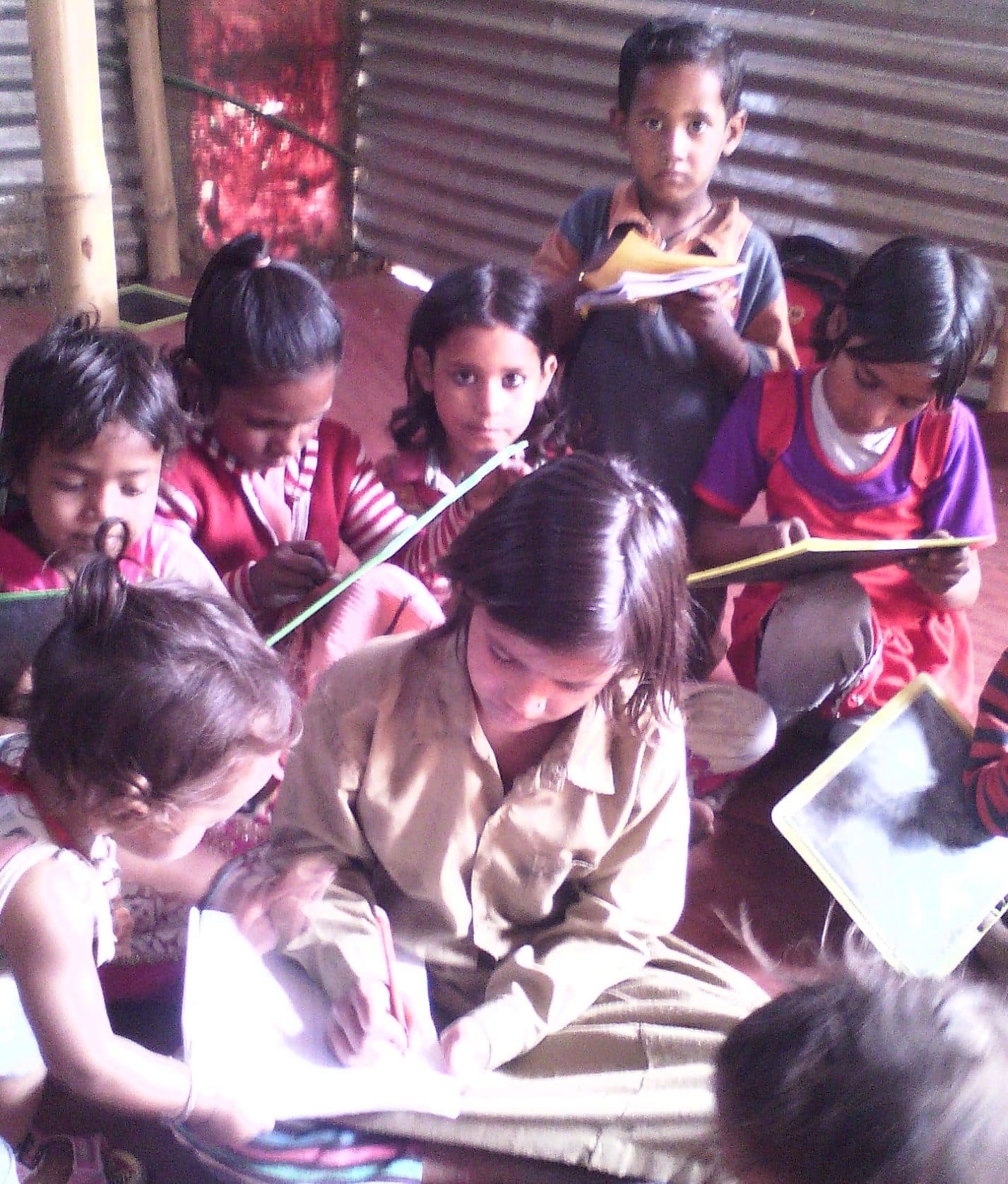
The Indian Pollution Control Association (IPCA) is a nonprofit organization that has worked for more than a decade on issues related to waste management and the people who work in the industry. During the last several years, with continuing support from IDS, IPCA has been providing instruction in basic literacy to ragpicker children. The teaching takes place in the “godowns” (warehouses) networked with IPCA.
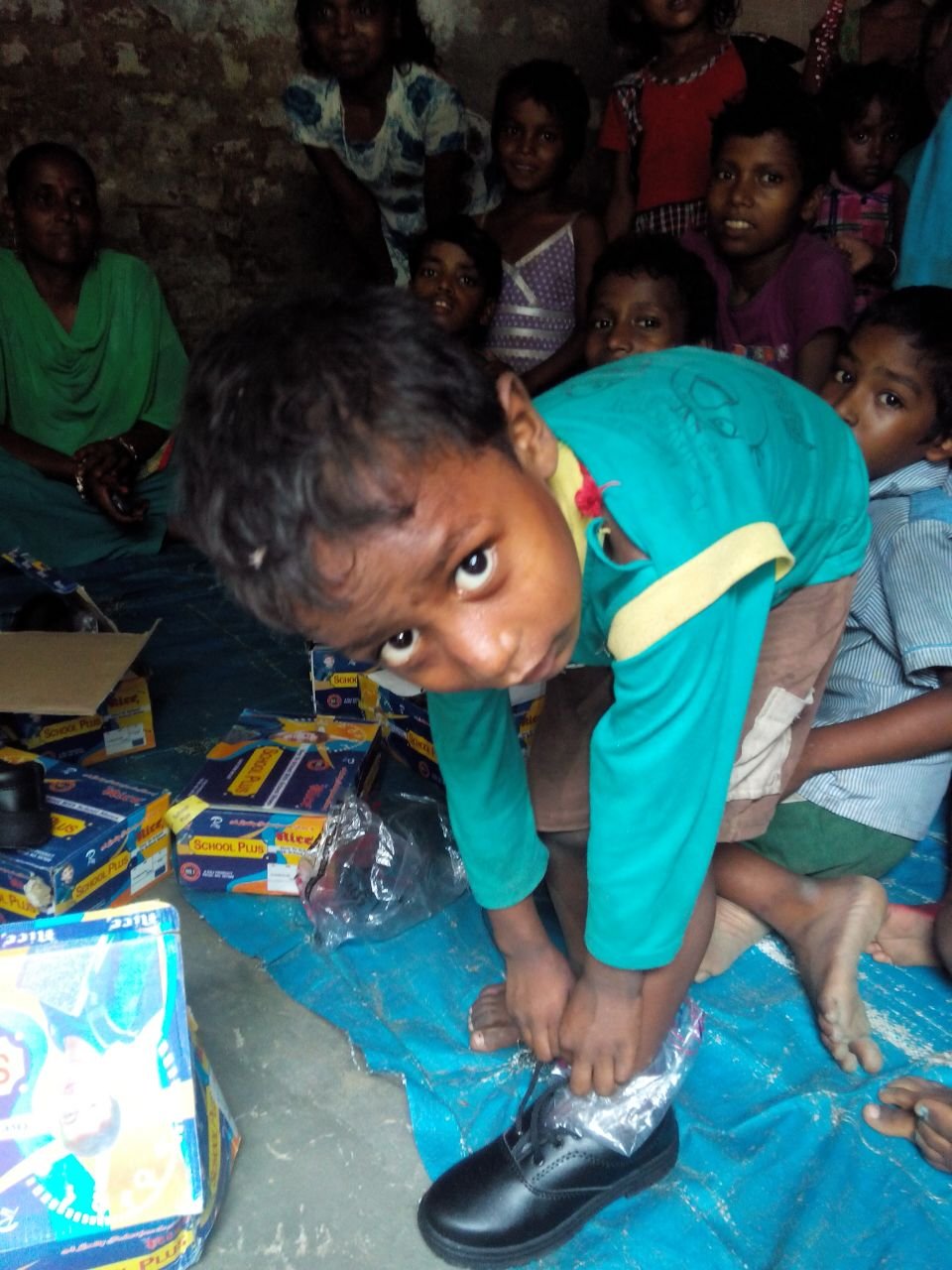
Thanks to the support of our donors, we have been able to expand the scope and scale of the project. Currently, we run a total of five schools in Noida and Ghaziabad (part of the National Capital Region). Over the last year, we have seen the enrollment in each school more than double, and we are currently educating some 267 children. Our unit cost to educate a child is approximately $50 per child per year. The cost to educate a child in a school building (as opposed to the open air model) is approximately $100 per child per year.
Our model is successful because our schools are located within the rag picker communities and employ a pedagogy (i.e., activity-based learning) that entices and encourages children’s participation in the learning process. Activity-based learning has been proven to be quite effective in attracting rag picker children to our schools and maintaining regular attendance.
We provide the school supplies (i.e., slates, books, and writing instruments). Given the frigid temperatures in Delhi during the wintertime, we also provide shoes and sweaters. Finally, through the generous support of one of our donors, we have been able to rent a building to serve one of our schools.
One of our objectives is to ensure that our rag picker children are not left out of mainstream activities and government schools. As such, we have been inculcating regular attendance and basic hygiene practices. Simple bathing, dressing in clean uniforms, and brushing teeth go a long way to help mainstream our kids. We want our children to be exposed to broader features of society as well and, to this end, our children attend plays and even had the chance to meet a member of Parliament.
Prior to our involvement, school officials at government schools resisted admitting child rag pickers; however, seventeen children from the rag picker community were admitted to government schools in 2014. The acceptance of the rag picker children into government schools has convinced other parents to enroll their children in our network. The demand is so great that in one year, we doubled our student capacity and provided two teaching shifts in one location. Potentially, we could serve 250 additional students.
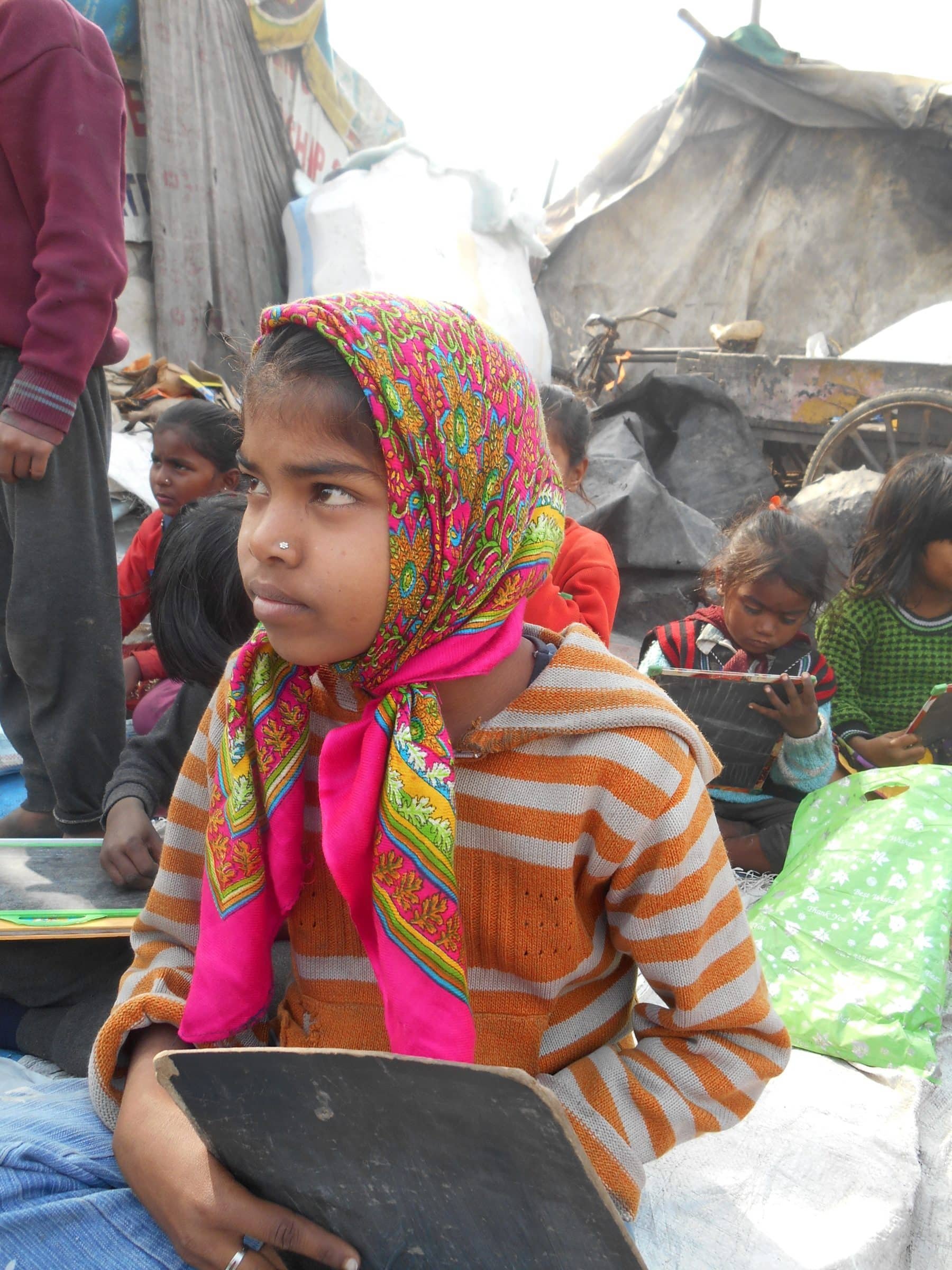
As we track our children’s progress, we have noticed that, on average, they are malnourished (according to World Health Organization standards) despite their economic stability and access to food. Their working conditions, coupled with a lack of basic amenities (access to clean drinking water and toilets) and poor sanitary practices, result in high levels of disease and malnutrition; our goal is to mitigate such problems in the future.
—2014 IDS annual report
During the last several years, the Indian Pollution Control Association (IPCA) has been dedicated to improving the health, education, and social well-being of rag pickers and their children. The funds from the IDS grant are used to develop moral and social responsibility among rag picker children in the Delhi area. In conjunction with the IPCA, two schools were set up in “godowns,” or warehouses, where the rag pickers work and live.
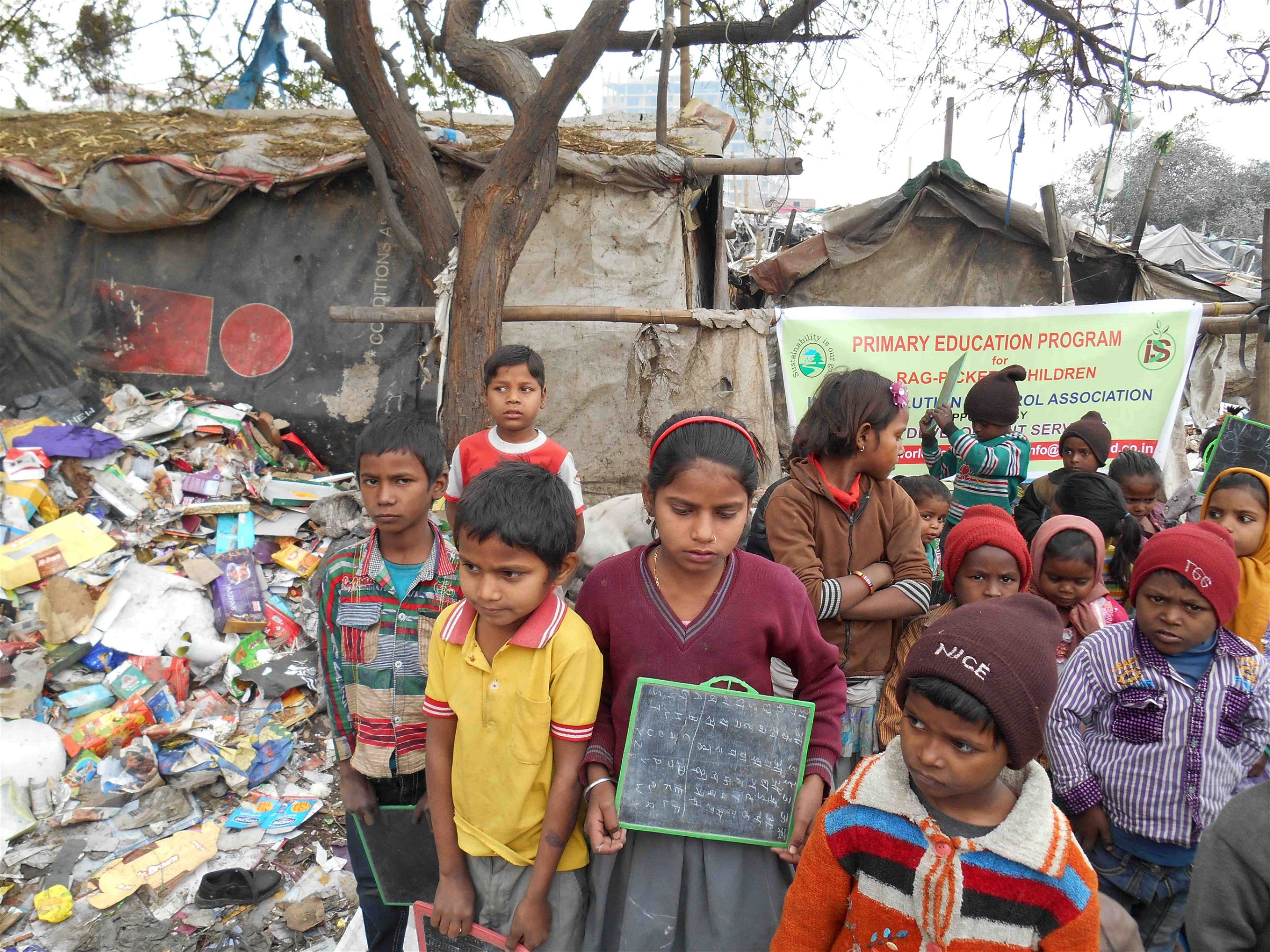
The first two schools were set up in Noida, but after a fire, one school was re-established in the Ghaziabad area. The second school was relocated to Okhla when the lease for the Noida godown expired. Although schools are located within the students’ communities, making attendance more likely, schools run only for half the day since loss of the children’s income would create a significant hardship for their families.
The pilot phase of the project included setting up more new schools. Future expansion plans call for the school network to grow from two to five and later to ten schools. The long-term goal is to expand the network to a total of 40 schools, one in each godown.
One of the goals of IDS intervention was to ensure that the children attend school regularly. Our focus will remain on ensuring that the children progress successfully into the governmental education network.
—2013 IDS annual report

